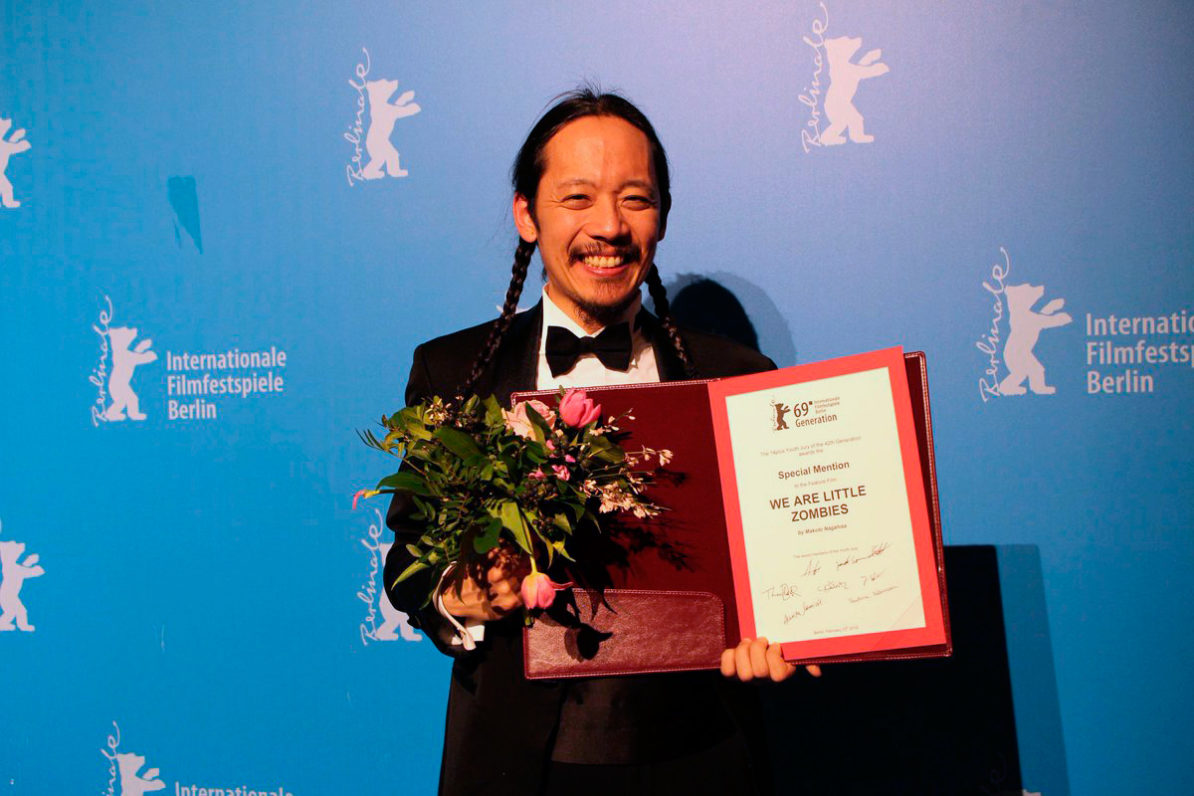From the above titled Asashi Shimbun article by Kenji Komine:
Although he remains a Dentsu employee, Nagahisa was mainly assigned unglamorous projects after he joined the advertising powerhouse in 2007. Instead of producing more creative TV commercials, he made video clips to sell beef at supermarkets and TV programs to promote local mascots. Proceeds from such productions were paltry for Dentsu.
“But I wanted to make things to satisfy clients, so I was busy and it was physically demanding,” Nagahisa said.
The stress caught up with him three years ago, and his health fell apart. He temporarily lost his hearing and couldn’t go out because of chest pain.
Determined to do something he wanted to do before it was too late, Nagahisa decided to make the movie he had dreamed of when he was a student. He took a paid leave of absence and shot his first movie, And So We Put Goldfish in the Pool, in 10 days in 2016. The title won the Short Film Grand Jury Prize at Sundance.
Nagahisa Makoto’s situation is emblematic of the visual creator in Japan. Financial stability can be found by becoming an employee at an advertising firm or other video production house–Dentsu happens to be the largest in Japan–where one is a cog. And in Makoto’s case, a cog they couldn’t figure out where to place and how to utilize. On the other hand, going solo as an independent filmmaker carries with it all the accompanying risks making the option a difficult choice when you have a family for whom to provide. But when one is professionally ostracized for being unique, what is one to do? Fortunately, Makoto had a vision and thankfully the drive (as fear motivated as it was) to create the movie he wanted (“Goldfish”). Many filmmaking voices in Japan must struggle with how to be unique and uncompromising in a society which values the exact opposite from newcomers, and even experienced veterans who work often with major studios. With luck, Makoto’s success abroad will be an example for both filmmakers and their employers of the potential they possess.
“There’s a tendency in modern society to just demand what’s right, saying ‘be positive, be serious,’” Nagahisa added. “But I hope the movie sends the message that it’s OK to run away, be a social recluse or go off the rails at times when it becomes too much for you.”
Makoto Nagahisa
